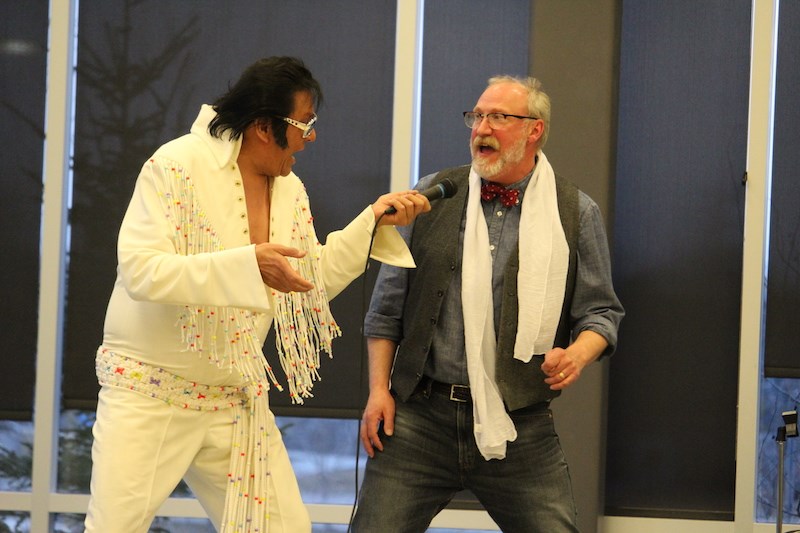The University College of the North’s (UCN) ninth language arts festival took place in Thompson April 24-25, with a trio of artists giving Indigenous youth plenty of insight on how to turn their passion into a career.
Similar to the last festival that UCN hosted in Thompson back in 2014, this year’s event revolved around the theme of humour, with two of its keynote speakers being veterans of the stand-up comedy scene.
Both Ryan McMahon and Gerry Barrett got to showcase their comedic chops on Wednesday night by performing at the Bill Comaskey Wellness Centre.
Since the festival’s participants were primarily Indigenous high school students −hailing for Cross Lake and Nelson House as well as Thompson −McMahon and Barrett’s material largely stemmed their own experiences “living on the rez” and navigating the entertainment industry through an Aboriginal lens.
While both men maintained a light tone throughout their respective sets, they also covered some darker subject matter, with Barrett joking about his experiences as a Sixties Scoop survivor.
The veteran comedian closed out the show by performing a number of Elvis Presley songs in full costume.
“Indigenous storytelling is just a doorway into a world that you might not have access to,” McMahon said in a conversation with the Thompson Citizen. “Indigenous stories give the world access to our lives in a way that takes you out of the negative headlines and the tropes and the stereotypes and provides a context and perspective on our lives that you don’t otherwise get.”
While author Chadwick Ginther was the outlier in this year’s speaker line-up, not being a professional comedian, he still hit on the importance of telling unique stories through different mediums.
“Find the stories that you want to read and nobody is telling,” he said. “You need to write those, because nobody else will.”
Ginther’s career as a published author is largely built on the back of this philosophy. His Thunder Road trilogy, for example, has a distinct Northern Manitoba look and flavour, with a lot of the action and the climax of the first book in his fantasy series taking place in Flin Flon.
Throughout this two-day festival, the roughly 30 youth participants also got to interact with these entertainers more closely through a series of workshops.
On top of critiquing their writing submissions, Ginther said these sessions also gave him an opportunity to tell these students about how to successfully monetize their love of writing and the arts.
“It’s tough ... usually it involves a lot of freelancing around your discipline,” he said. “A lot of writers also work as editors or do manuscript evaluations or do teaching gigs. All that sort of stuff.”
McMahon said this diversity of opportunity is also available through his career as a comedian, since he’s done work in film, television, publishing and even podcasting.
For any Indigenous youth who are still unsure of their ability to make it in creative industries McMahon ensures them that the Internet has torn down a lot of the barriers that used to exist for burgeoning artists in marginalized communities.
“I’ve been to Hollywood, I’ve been to New York, I’ve been to Toronto, I’ve done shows around the world, but I’m a kid from the bush who grew up on a trapline too,” he said. “So if my dreams can come true with some hard work and dedication, so can yours.”




